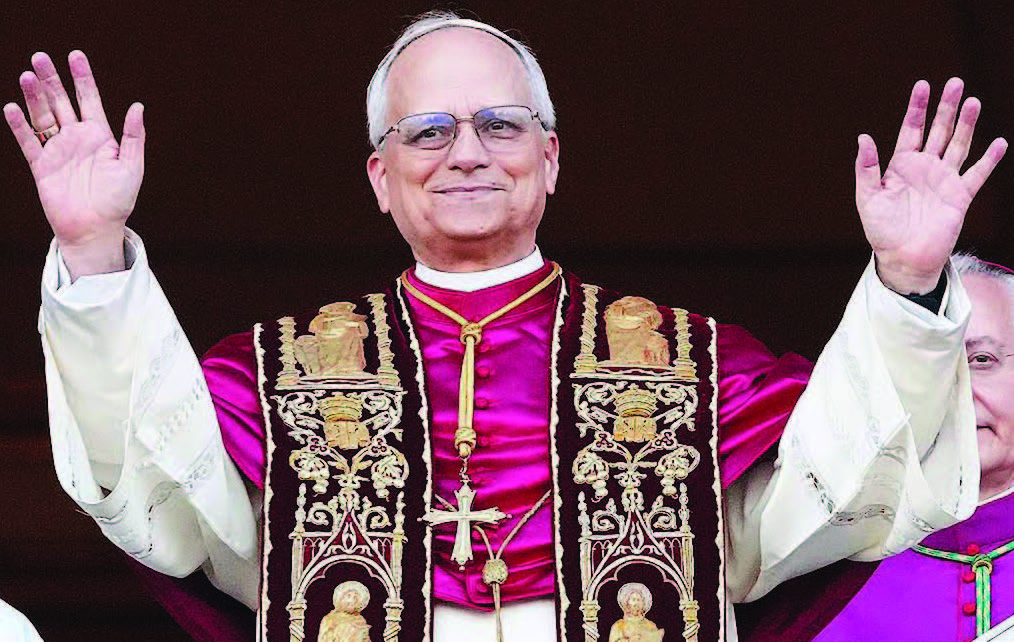On May 8, shortly after 1 p.m. local time in Rome, white smoke emerged from the chimney of the Sistine Chapel, confirming that the College of Cardinals had selected the next Bishop of Rome. An hour later, Cardinal Dominique Mamberti, the College’s protodeacon, stepped onto the central balcony of St. Peter’s Basilica to introduce the newly elected Pope to an enthusiastic crowd.
The 69-year-old American Cardinal Robert Prevost, formerly the prefect of the Dicastery for Bishops, had been chosen to succeed Pope Francis. He will lead the global Catholic Church under the name Pope Leo XIV.
Originally from Chicago, Prevost was born in 1955 and pursued a mathematics degree at Villanova University before entering the Order of St. Augustine in 1977. He completed his master of divinity at the Catholic Theological Union in Chicago and later obtained a doctorate in canon law from the Pontifical University of St. Thomas Aquinas (the Angelicum) in Rome.
Following his ordination in 1982, Prevost embarked on missionary work in Peru beginning in 1985. His service there included roles as parish priest, diocesan chancellor, and rector of the local seminary. He was later appointed Bishop of Chiclayo in 2015. His time in Peru was interspersed with leadership responsibilities within the Augustinian order, serving as vocation director, provincial, and eventually prior general.
In 2023, Prevost was called to Rome by Pope Francis, who appointed him as head of the influential Dicastery for Bishops. That September, he was elevated to the College of Cardinals. Despite his prominent Vatican role, he remained relatively low-profile and was not initially listed among the leading contenders for the papacy after Pope Francis’s death on April 21. However, in the final days preceding the conclave, speculation intensified about his candidacy, especially as a potential consensus figure among the electors.
His election, reportedly on the third or fourth ballot, was quicker than many had expected. Analysts believe this suggests an agreement among the cardinals, many of whom were appointed by Francis himself. Leo XIV’s track record of balancing theological conservatism with pastoral sensitivity may have appealed to diverse factions within the College.
In his first public address as Pope, Leo XIV greeted the faithful from the loggia, choosing to wear the traditional mozzetta and stole—a departure from Pope Francis, who had omitted those vestments. He began his remarks in Italian and later spoke in Spanish to acknowledge the faithful in Peru, expressing his intention to walk alongside all people in faith. “For you I am a bishop; but with you, I am a Christian,” he said, a line met with applause.
During his career, Pope Leo has voiced consistent support for traditional Church teachings on social issues. He has been vocal in his opposition to abortion and gender ideology, calling abortion “a form of murder” and expressing concern that society increasingly embraces ideas inconsistent with the Gospel. He has argued that movements to allow blessings for same-sex couples risk sending a confusing message about Church doctrine. At the same time, he has shown understanding toward pastoral flexibility, notably offering a cautious openness to elements of Amoris Laetitia that consider the reception of the Eucharist by divorced-and-remarried Catholics.
He has publicly opposed the ordination of women, suggesting that doing so would inadvertently “clericalize women” rather than elevate their role in the Church through appropriate means. While firmly conservative on doctrine, Leo has emphasized social justice in areas such as poverty, migration, and racism. In 2020, while still in Peru, he joined in mourning the death of George Floyd and denounced racial hatred.
His leadership style mirrors much of Pope Francis’s emphasis on humility and presence among the people. “We must walk with the people, suffer with them, and serve them humbly,” he said in 2024, echoing a tone consistent with his predecessor’s pastoral approach.
Nevertheless, some controversy has trailed his rise. While serving as Bishop of Chiclayo, he was criticized for his handling of allegations of sexual abuse involving two local priests. Critics claimed the diocese tried to pay accusers to remain silent. The diocese has denied this and provided documentation showing that Bishop Prevost met with the accusers, encouraged them to approach civil authorities, conducted a canonical investigation, and referred the matter to the Vatican. The College of Cardinals appears to have found these explanations credible enough not to hinder his election.
At his introduction to the world as Pope, he offered a calm but clear message: “God loves everyone. Evil will not prevail. United in Christ, we go forward without fear.”


